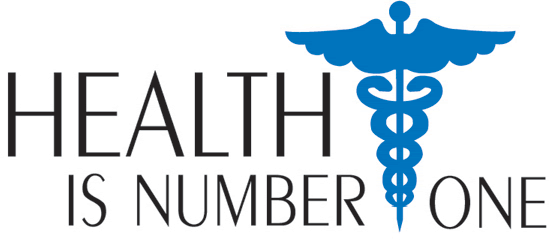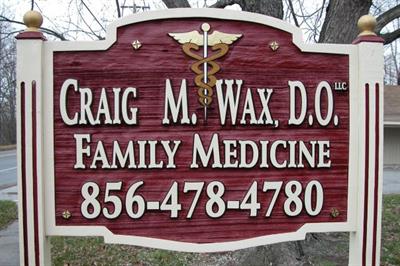Health Library ~ Family Medicine in Mullica Hill, NJ
Cardiovascular Health
All Material copyright Craig M. Wax, DO unless otherwise denoted.
Maintaining a Healthy Heart
Heart disease affects more than 63 million Americans and claims the lives of one out of two adults each year. These staggering statistics make heart disease the number one killer in the United States, above AIDS and cancer deaths combined.
"Many Americans do not realize that some of their daily habits can greatly increase the likelihood of developing heart problems," reveals Craig M. Wax, D.O., an osteopathic Family Physician in Mullica Hill, NJ. "However, adopting healthy habits can significantly reduce your chances of having heart disease."
To maintain a healthy heart, it is important to understand the risk factors for heart disease. "Unfortunately, there are several risk factors you cannot change, such as increasing age, genetics and ethnicity," insists Dr. Wax. "Heart disease is more likely to occur among people ages 65 and older, post-menopausal women, diabetics, people with a family history of heart disease, African Americans and Hispanics."
There are, however, risk factors that are controllable, such as smoking or drinking alcohol. Chronic drinkers or smokers, or those who are continually exposed to secondhand smoke, put themselves at a greater risk for heart disease. In addition, risk factors related to physical inactivity and poor nutrition-such as high cholesterol, high blood pressure, obesity and stress greatly increase the likelihood of getting heart disease. "Modifying your schedule to include exercise and a proper diet reduces these risk factors, allowing you to maintain a heart-healthy lifestyle," Dr. Wax recommends.
There are three basic types of exercise: stretching, strengthening and aerobic. Stretching exercises lengthen muscles and improve flexibility. Strengthening exercises tone muscles and improve strength. Aerobic exercises strengthen the heart muscle specifically, making it the most beneficial type of exercise for preventing heart disease.
"Doing aerobic exercises, such as walking, jogging or low-impact aerobics will improve your circulation and breathing, lower blood pressure and help your body use oxygen more eficiently," explains Dr. Wax. "You can also combine aerobic exercises with stretching and strengthening exercises to create a well-rounded workout routine. Following a regular exercise routine will make you feel healthier and more energetic, while combating the factors that put your health at risk."
Dr. Wax points out that you also need to monitor what you eat because it does affect your heart’s health. A good nutrition program can lower cholesterol, blood pressure and body fat. Eating healthy foods like fruits, vegetables and legumes; balancing your intake of animal, fish and vegetable sources of protein; and making sure that you limit your intake of foods that are high in cholesterol, sugar, salt and saturated fats are recommended.
According to new guidelines released by the U. S. Preventive Services Task Force (USPSTF), a daily dose of aspirin can also help in preventing first-time heart attacks and strokes. "This is excellent news for those with personal health risk factors and family histories of adverse advents," expresses Dr. Wax. "Aspirin is available over the counter at almost any drug store. However, you should always discuss with your physician the risks and benefits of taking any medication on a regular basis. Like most drugs, aspirin has side affects and is not safe for all patients, especially those with stomach ulcers or bleeding problems."
"Maintaining your overall health will reduce the risk factors associated with heart disease," stresses Dr. Wax, "but remember, it’s a good idea to consult your physician for a formal health assessment to start an exercise and diet program that's right for you."
|





